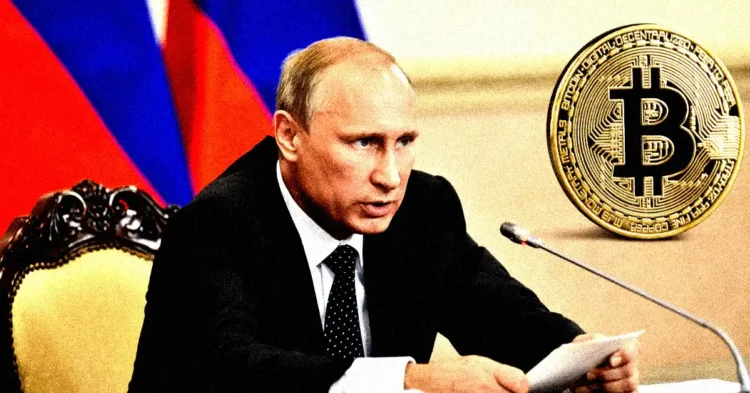In a rapidly changing global landscape, Russia is making significant adjustments to its financial strategies. Faced with increasingly stringent sanctions and disrupted trade routes, the nation is turning towards Bitcoin and other digital currencies as a means of adapting and surviving. This initiative is not merely a step towards innovation; it is a crucial move for economic sustainability. As sanctions tighten their grip on traditional payment systems, Russia is determined to keep its trade channels open, regardless of the challenges.
The Blueprint for Bitcoin Integration
In a landmark decision made in July, Russia enacted legislation that legalizes the use of cryptocurrencies for international transactions. This development is pivotal, aiming to bypass sanctions and maintain the flow of goods with nations such as China and Turkey. According to Finance Minister Anton Siluanov, this strategy is already in motion, with companies actively using Bitcoin to finalize deals. The move underscores a broader trend, with countries like Iran having leveraged mined Bitcoin to circumvent sanctions for years. Russia appears to be adopting a similar approach, anticipating a significant increase in crypto demand in the coming year as more enterprises join this financial shift.
However, the focus extends beyond Bitcoin. President Vladimir Putin has also endorsed the digital ruble, a blockchain-based iteration of Russia’s national currency. While he acknowledges its “experimental” nature, he emphasizes its necessity for progress. Concurrently, Putin has highlighted the importance of regulating mining farms, which are proliferating but also contributing to power shortages in certain regions.
Limitations and Regulatory Challenges
Despite Russia’s robust embrace of cryptocurrencies for international commerce, the domestic use of digital currencies remains restricted. For instance, purchasing a coffee with Bitcoin in Moscow is not yet feasible, as the Central Bank remains cautious about potential fraud and unchecked energy consumption. Nevertheless, the Russian government is actively developing a regulatory framework for the industry. Part of this framework involves considering the establishment of a Bitcoin reserve designed exclusively to support foreign trade. This approach reflects a careful balancing act—embracing the advantages of crypto while safeguarding domestic economic stability.
Looking Ahead: The Future of Crypto in Global Trade
Russia’s foray into digital currencies marks the beginning of a transformative era. By wagering on cryptocurrencies, the country seeks to extricate itself from a global financial system it perceives as being leveraged against it. The critical question remains: will this strategy prove successful? While the outcome is uncertain, one aspect is clear—digital currencies are increasingly integral to global trade dynamics. For countries like Russia, they represent not merely an experimental venture but a vital economic lifeline.










